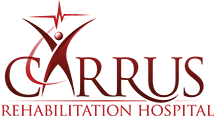
In a world where communication is the cornerstone of connection, expressing yourself clearly and effectively is invaluable. Recognizing when someone may benefit from speech therapy is vital in empowering them to communicate more freely and confidently.
This guide is designed to help you identify signs and symptoms that may indicate a need for speech therapy intervention, ensuring everyone can be heard and understood.
Understanding Speech Therapy
Speech therapy is a specialized area of healthcare that focuses on evaluating and treating communication disorders and speech-related issues.
It caters to a wide range of needs, from improving pronunciation and articulation to enhancing language development and swallowing function.
Speech therapists, or speech-language pathologists (SLPs), are dedicated professionals who work closely with individuals of all ages to tailor interventions that meet each person’s unique needs.
When to Consider Speech Therapy
Here are some indicators for when you may want to consider visiting a speech therapist:
Early Childhood Development
Children develop at their own pace, but there are critical milestones to watch for in speech and language development.
Consider seeking a speech therapy evaluation if your child:
- Does not coo or babble as an infant
- Has difficulty following simple directions by age 2
- Is not using words by 18 months or sentences by 3 years
- Shows frustration when trying to communicate
School-age Children and Adolescents
As children grow, their communication needs become more complex. Speech therapy might be necessary if a school-age child or adolescent:
- Has trouble understanding what is said to them or expressing thoughts clearly
- Struggles with reading and writing skills
- Frequently mispronounces words or has a speech impediment
- Experiences social challenges due to communication difficulties
Adults
Speech therapy is not just for children; adults can also benefit from it, especially after certain life events.
Consider speech therapy for adults who:
- Have suffered a stroke or traumatic brain injury affecting their speech
- Experience difficulty swallowing or chewing
- Notice changes in their voice quality, such as hoarseness or loss of voice
- Face communication challenges due to degenerative diseases like Parkinson’s
The Benefits of Speech Therapy
Engaging in speech therapy offers numerous benefits, including:
- Improved communication skills
- Enhanced quality of life
- Increased confidence in social situations
By addressing speech and language challenges early, individuals can achieve significant progress, leading to more successful and fulfilling interactions with the world around them.
What to Expect During Speech Therapy Sessions
Embarking on the journey of speech therapy is a courageous step toward enhancing communication and improving quality of life.
Here is what you can expect during speech therapy sessions, ensuring a comfortable and supportive experience.
Initial Assessment
Your journey begins with a comprehensive evaluation conducted by a skilled speech-language pathologist.
This initial assessment is designed to understand your unique needs, strengths, and areas for improvement. It may involve:
- Discussions about medical history
- Observation of speech and language skills
- Standardized testing
This phase allows your therapist to craft a personalized therapy plan tailored just for you or your loved one.
Setting Goals
Based on the assessment, your SLP will collaborate with you to set realistic and achievable goals. These objectives are centered around your specific needs, whether it is:
- Improving pronunciation
- Enhancing language comprehension
- Developing effective communication strategies
Our focus is on empowering you to reach your full potential, guided by our commitment to patient-centered care.
Tailored Therapy Sessions
Speech therapy sessions are thoughtfully designed to address your individual goals through a variety of activities and exercises.
Depending on the age and needs of the individual, these may include:
- Articulation Exercises: To improve clarity of speech by practicing specific sounds.
- Language Activities: Aimed at enhancing vocabulary, grammar, and language processing.
- Voice Therapy: Techniques to improve voice quality, pitch, and volume.
- Social Communication Skills: Strategies to enhance effective communication in various social contexts.
- Swallowing Therapy: For individuals with difficulties in swallowing, exercises are tailored to strengthen the muscles involved.
Your SLP will employ a mix of traditional methods and innovative techniques, ensuring each session is engaging, effective, and tailored to you.
Supportive Environment
Your healthcare team will create a warm, welcoming environment where you feel supported and understood.
This is why it is important to find SLPs who are not only experts in their field but also compassionate individuals who are dedicated to making a positive impact in your life.
Continuous Evaluation and Feedback
Progress is a key focus of your therapy sessions. Your SLP will continuously monitor your advancement towards your goals, providing feedback and adjusting the therapy plan as needed.
Open communication is encouraged, ensuring that your therapy experience is both effective and fulfilling.
Speech Therapy Near Me in Sherman, TX
If you or a loved one is experiencing signs or symptoms that might benefit from speech therapy, visit us here are at Carrus Health Rehabilitation Hospital. Our inpatient rehabilitation facility is focused on helping patients with medical conditions that have caused the development of certain impairments, including speech and swallowing challenges. We are highly experienced in treating and helping rehabilitate patients who have suffered a stroke or brain injury and offer a wide range of amenities in our world-class center.
The health, safety, and comfort of your loved one are our priority. For any questions or to schedule an appointment with us, call our office today at (903) 870-2600.
We look forward to serving you!

